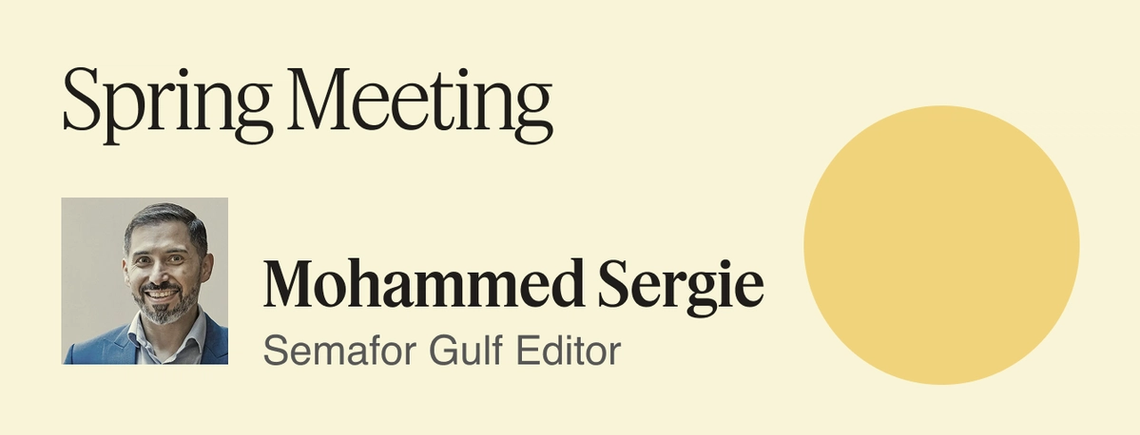 Welcome back to Semafor Gulf, where we are following the money to Washington, DC. The world’s finance and business leaders — including prominent delegations from the Gulf — are converging on the American capital this week for the International Monetary Fund and World Bank spring meetings. While the usual topics are on the agenda, the backdrop is tense as the Trump administration targets these and other multilateral institutions focused on global cooperation in trade, aid, and development. The stock market rout and trade tensions have dampened the mood. The IMF downgraded its global growth forecast for the year and may raise inflation projections for several countries. The World Trade Organization now expects goods trade to grow just 0.2% this year, down from its previous estimate of 2.7%. The good news: the global economy is likely to avoid a recession in 2025. Trade is a top priority for Gulf countries, especially as the region positions itself as a critical transshipment hub. Saudi Arabia and the UAE, combined, ranked among the top five biggest exporters and importers of goods last year, according to the WTO. Another initiative on the agenda is to boost global cooperation to rebuild Gaza, Lebanon, and Syria. The IMF, World Bank, and several Arab states are expected to hold meetings to build on discussions that began in Saudi Arabia in February.  And this week, Semafor is hosting the World Economy Summit, featuring finance ministers, Trump administration officials, and global business leaders — including the CEOs of General Motors, Netflix, Snap, and Uber. Gulf officials will also speak about the transformation of the region’s economies and growing investments in artificial intelligence and other advanced technologies. I’ll be there, and hope to see you this week, in person or remotely: Let me know if you’ll be attending by replying to this email. And get more details about WES here. |